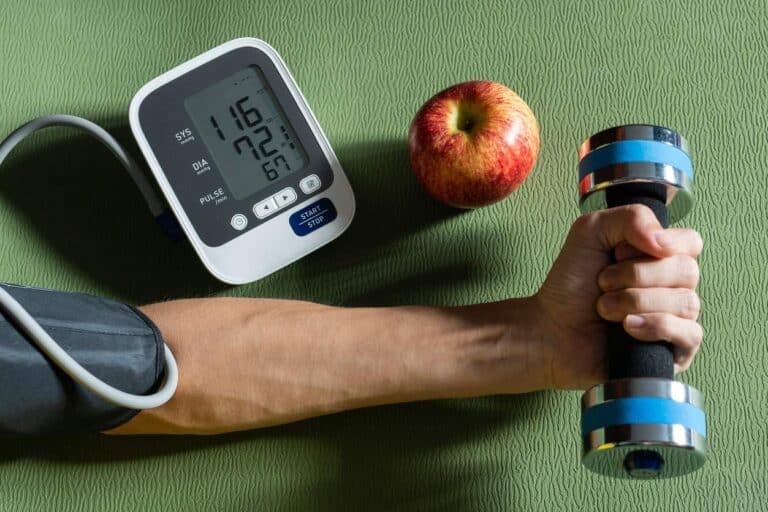Smart Health Solutions: Navigating Diabetes with Automated Fitness and Lifestyle Strategies
Living with diabetes can be challenging because you need to monitor and manage your blood sugar levels consistently. Imagine if technology could handle tasks and provide individualized support. That’s where smart health solutions come in. They bring new tools to help people with diabetes get healthier.
Wellness Automation
It’s essential to work out often to control diabetes, but it can be challenging to make time and stay motivated. These devices can monitor the number of steps you take, your level of physical activity, and your heart rate. They tell you how you’re doing and encourage you right away. Specific instruments can link up with glucose monitors to show the impact of physical activity on blood sugar levels.
Customized Meal Planning
Monitoring your calorie intake is an essential part of controlling diabetes. Make sure to think about what you eat and how much you eat. Typically, this meant keeping track of the calories and carbs eaten by hand. “It’s now easier to plan meals that fit your likes and needs using smartphone apps and websites.
These systems employ novel mathematical algorithms to calculate an individual’s age, weight, level of physical activity, and optimal blood sugar levels. Based on this information, they create custom meal plans that include recipes, shopping lists, and details about the food’s nutrition. Some groups worked with simple food delivery services to make eating healthy more accessible and more convenient. This helps people feel less worried about hard diets and lets them confidently pick healthy foods that work for them.
Continuous Glucose Monitoring
Acting before a problem happens. For a long time, people with diabetes have had to keep pricking their fingers to check their blood sugar levels, which is bothersome and invasive. Technological advances have introduced continuous glucose monitors (CGMs), offering a new way to track blood sugar levels. These tiny devices you can wear constantly flow information about your blood sugar. This means you don’t have to poke your finger multiple times daily to check your blood sugar.
Continuous glucose monitors (CGMs) allow people to see their blood sugar levels in real-time. This helps them understand how their blood sugar changes throughout the day. This information will enable you to change your diet, exercise, and medication before your blood sugar levels increase, which may help prevent sudden changes in blood sugar levels. Additionally, CGMs can send alerts to the user and contact people in case of low or high blood sugar levels, providing an extra sense of safety and peace of mind.
AI-Powered Coaching
AI coaching uses machines to provide help and support during trips. Artificial intelligence is making healthcare better and faster, including helping people with diabetes. Artificial intelligence virtual assistants are becoming more helpful. They are available to offer guidance, address inquiries, and provide assistance around the clock. These computer coaches help people by analyzing their data, finding trends, and recommending changes to their daily schedules based on their circumstances.
Imagine this: a computer tells you to check your blood sugar and movement and suggests taking a short walk after eating to keep your blood sugar levels steady. This coaching provides personalized advice to help individuals maintain their health and encourages them to manage their well-being actively.
Healthcare Education Classes
It’s essential to learn about healthcare to build a strong understanding. The latest health gadgets are fantastic. However, it’s important to remember that technology cannot replace professional medical advice and support. It’s only a tool. Those with diabetes are advised to participate in doctor-led classes to acquire essential skills for managing their condition. These classes will help you learn about your body and how to manage your condition by keeping track of your carbs and managing your medication.
Healthcare education classes help people feel like they fit in and have support from others. Talking to friends and paying attention to what they say can be helpful. It can help people solve problems and feel more confident about their trips. Taking advantage of clever health plans and gaining healthcare knowledge can help individuals look after their health.
Future of Smart Health Solutions
Technology is expected to enhance the quality of healthcare in the coming years. There is hope for good ways to help with diabetes using these smart health solutions in the future.
Advances in AI, sensors, and data analysis are helping to create better and more personalized tools. Consider gadgets that can monitor your health and warn you if there might be a problem later on. They can also help you know how to stay well.
Additionally, computer programs using artificial intelligence could improve their ability to support feelings and deal with mental issues connected to long-lasting sicknesses. Technology should help, not replace, human interaction and advice from medical experts. Understanding traditional and modern healthcare practices enables individuals with diabetes to enhance their quality of life and manage their condition more effectively.







